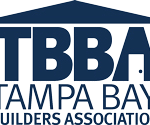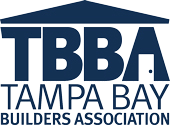
July 21, 2025
The National Association of Home Builders sees distinct positives for the housing industry in President Donald Trump’s recently passed Big Beautiful Bill. However, industry observers view the groundbreaking legislation as more of a mixed bag.
The NAHB points to several key housing and business provisions in the legislation that it believes will benefit small businesses, real estate, and its members. But other experts believe the impact will vary from region to region, depending on several factors such as mortgage interest rates, tax burdens, housing prices, supply, demand, and economic uncertainty.
That laundry list of real estate influences already has the Tampa Bay and Florida market transitioning into a buyers’ market. While the Big Beautiful Bill could lead to housing supply increases that will benefit some areas, that doesn’t appear to be the issue in this region.
"There are several parts of the bill that could affect real estate and housing markets, but its impact won't be uniform," Realtor.com senior economist Jake Krimmel told Newsweek.
There’s also debate about what sector will benefit the most. CNN notes that while the passage of the bill could lead to more housing, it also may tilt the playing field in favor of wealthy buyers and powerful landlords. Miriam Axel-Lute, CEO-Editor of Shelterforce, a nonprofit publication that has covered affordable housing issues for more than 50 years, believes the bill’s favorable housing provisions can’t counter cuts to Medicaid and SNAP.
“(The Medicaid and SNAP cuts) will bring about widespread job loss and a surge in poverty, causing the number of people who cannot afford housing to soar far beyond what the new housing provisions could address,” Axel-Lute wrote in a recent blog.
Low-Income Housing Tax Credit Expanded
The legislation includes a permanent expansion of the Low-Income Housing Tax Credit, a federal tax credit that incentivizes the development and preservation of affordable rental housing. The new bill includes increases in credit allocations and reductions to the bond test. NAHB believes the additions to LIHTC will expand resources in bond-constrained states.
National Housing Conference president and CEO David Dworkin told Investopedia, a financial education website, that the changes expect to produce or preserve more than one million additional affordable rental homes between 2026 and 2035.
But New American Funding managing editor Ben Lane cited other experts who put the number of affordable homes being built over the next decade at 527,000.
Limits on State, Local Taxes For Homeowners
The bill also increases the individual state and local tax (SALT) limit from $10,000 up to $40,000 for taxpayers earning less than $500,000 for a five-year period. However, Florida is not at the top of the list of states that expect to benefit most from this provision. It’ll benefit homeowners who face high local and state property taxes.
Realtor.com lists New Jersey (39.9 percent), New York (25.9 percent), Connecticut (19.4 percent), California (19.3 percent), Massachusetts (18.4 percent), New Hampshire (16.3 percent), Illinois (13.7 percent), Texas (12.4 percent) and Rhode Island (9.3 percent) as states with the highest share of properties taxed over $10,000. The list also includes the District of Columbia (15.6 percent) in the top 10.
The SALT limit will revert to $10,000 cap in 2030. NAHB predicts the debate over limiting the deductions will continue as both opponents and proponents gauge its impact.
Krimmel, the senior economist from Realtor.com, told Newsweek the provision will be meaningful for higher-income buyers and real estate investors, but less impactful for lower-income renters.
“(They still face) the steepest affordability challenges in today’s housing market,” Krimmel said.
NAHB also notes that The Big Beautiful Bill will:
- Make permanent the Section 199A Qualified Business Income Deduction, which helps provide tax parity for pass-through entities at 20%.
- Restore and make permanent a 100% bonus depreciation.
- Make permanent the estate tax exemption increase to $15 million and index the exemption to inflation.
- Remove the business SALT provision limiting the amount of state income taxes a pass-through business can deduct.
